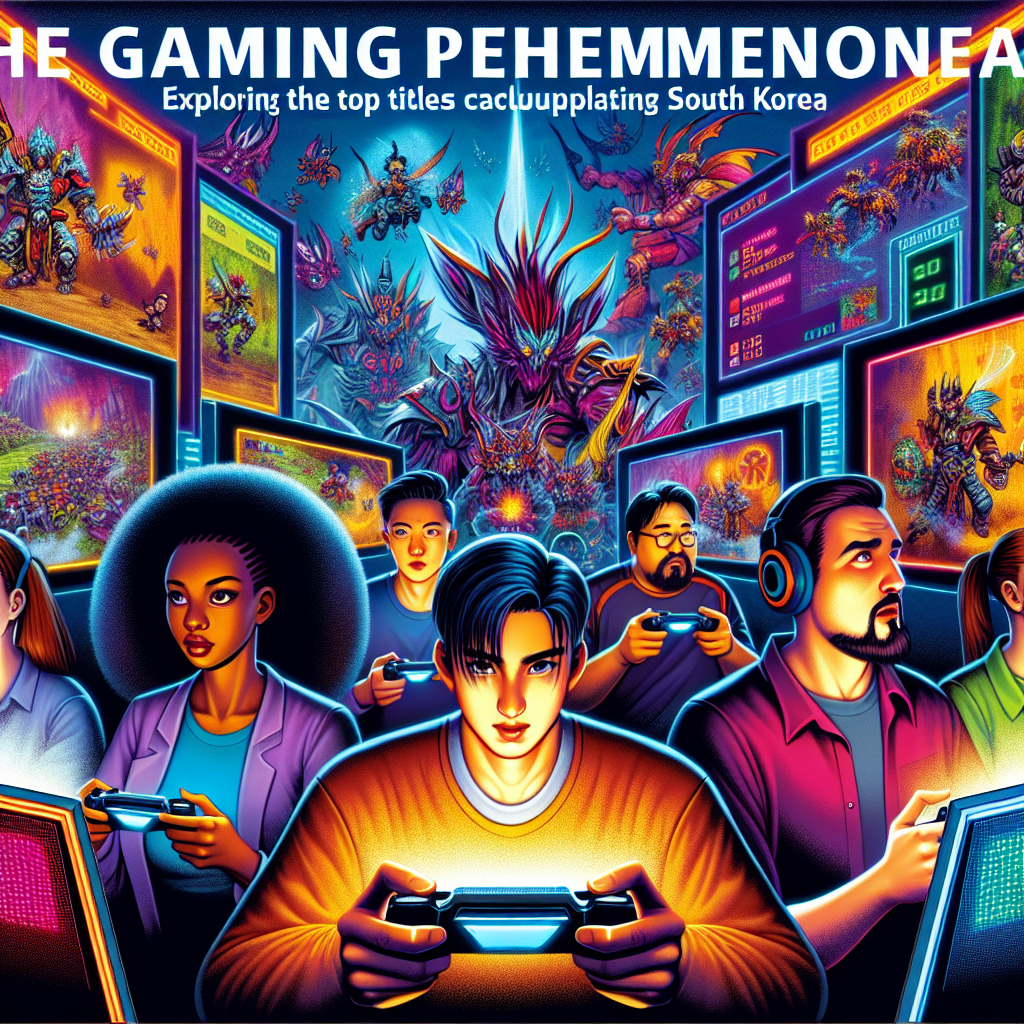The Gaming Phenomenon: Exploring the Top Titles Captivating South Korea
South Korea stands as a towering figure in the global gaming landscape, renowned for its vibrant e-sports scene and innovative game development. With an expansive market and a tech-savvy population, South Korea has become a sanctuary for gamers, developers, and entrepreneurs alike. This article explores the top gaming titles currently captivating South Korea, detailing their influence on the gaming culture and industry.
The Rise of E-Sports
Before diving into specific titles, it’s important to acknowledge the e-sports phenomenon that has permeated South Korean society. Games such as League of Legends, StarCraft II, and Overwatch have transcended their entertainment roots, evolving into cultural spectacles that draw millions of fans both online and in packed arenas. E-sports tournaments, backed by corporate sponsorships, offer substantial prizes and have transformed players into national celebrities.
Top Titles Captivating South Korean Gamers
-
League of Legends
Developed by Riot Games, League of Legends (LoL) is not just a game in South Korea; it is a way of life. With its strategic gameplay and team collaboration, LoL enraptures millions of players. The South Korean professional league, the LCK (League of Legends Champions Korea), is one of the most competitive leagues in the world. Home to powerhouses like T1 and DWG KIA, the LCK continually nurtures top-tier talent and draws huge sponsorship deals, making it a linchpin of South Korean gaming culture.
-
PUBG: Battlegrounds
PlayerUnknown’s Battlegrounds (PUBG) took the gaming world by storm with its battle royale format. In South Korea, it has become a staple of late-night gaming sessions and a popular choice for live streaming. PUBG focuses on survival and strategy, setting it apart from other genres. Its engaging gameplay and emphasis on team dynamics resonate well with South Korean gamers, and competitive tournaments offer substantial cash prizes, further fueling interest.
-
FIFA Series
The FIFA series has also gained immense popularity in South Korea, particularly among sports enthusiasts. With its realistic gameplay mechanics and continuous updates, FIFA appeals to both casual players and dedicated fans of football. The game’s ability to connect players worldwide through online matchmaking has solidified its status within the competitive gaming community. South Korea’s strong cultural ties to football enhance FIFA’s appeal, as many gamers take pride in their national and local teams.
-
MapleStory
A classic in the realm of MMORPGs, MapleStory continues to hold a cherished place in South Korea’s gaming history. Launched in 2003, its bright graphics and engaging quests attracted a dedicated player base, leading to its sustained popularity over the years. The game’s whimsical world allows players to express themselves through character customization and social interactions, making it a quintessential digital community for many South Korean gamers who grew up with it.
-
Genshin Impact
The recent surge of interest in Genshin Impact showcases the growing trend of expansive open-world games in South Korea. Its stunning graphics and immersive storytelling offer a breath of fresh air to gamers. Released by miHoYo, Genshin Impact was lauded for its gacha mechanics, intricate world design, and character diversity. Its popularity is also attributed to the rise of mobile gaming, allowing players to enjoy the game on the go, an attractive option for South Koreans with busy lifestyles.
The Role of Technology and Culture
The success of these titles in South Korea can be attributed to several factors. The country boasts one of the highest internet speeds globally, enabling smooth online multiplayer experiences. Cultural acceptance of gaming as a legitimate form of entertainment enhances participation, with parents increasingly encouraging their children to pursue gaming as a career, especially in e-sports.
Moreover, social media platforms like Twitch and YouTube have fostered a thriving community where gamers can share their strategies, stream their gameplay, and engage with their audience. This community aspect not only solidifies players’ commitment to their games but also attracts new players seeking connection and entertainment.
Conclusion
Gaming in South Korea is a remarkable phenomenon characterized by innovative titles, competitive e-sports, and a thriving community culture. Games like League of Legends, PUBG: Battlegrounds, FIFA, MapleStory, and Genshin Impact are not merely sources of entertainment; they are integral components of South Korean life. As technology continues to evolve and the global gaming landscape shifts, South Korea remains at the forefront of this captivating industry, eagerly embracing what tomorrow’s games will bring.




